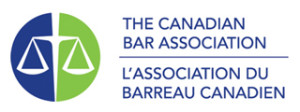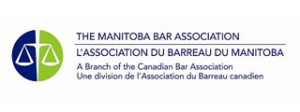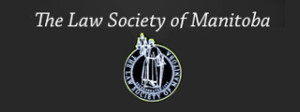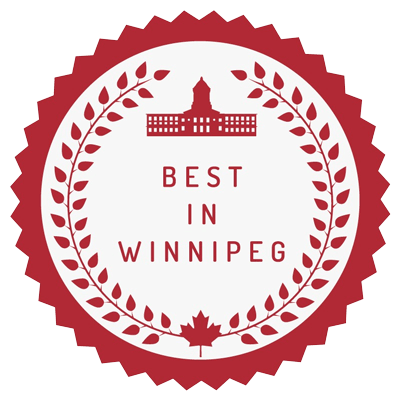Immigration
Welcome to Fridman & Co. – Your Premier Canadian Immigration Law Firm
At Fridman & Co., we understand that the journey to Canada can be complex and overwhelming. As the leading Canadian immigration law firm, our dedicated team of highly experienced immigration lawyers is here to guide you through every step of the process. Whether you’re seeking Permanent Residence, Temporary Residence, or exploring various immigration programs, we have the expertise to help you succeed.
Permanent Residence
A lawful permanent resident is someone who has been granted the right to live in Canada indefinitely. Permanent residence includes the right to live, work and study in Canada. It also provides the right to sponsor family members, such as spouses, common-law partners, children, parents and grand-parents.
Achieving Permanent Residence in Canada is a significant milestone for many. Our skilled immigration lawyers specialize in various pathways, including Express Entry, Family Sponsorship, and the Provincial Nominee Program (PNP). We will assess your eligibility, prepare your application, and ensure that you understand the requirements for a successful outcome.
Permanent residents are given a Permanent Resident “PR” Card,” which is a photo ID card that proves their status. Permanent residents continue to remain citizens of another country. So, every time you travel outside Canada, you must carry the passport of that country as well as the PR card. You will need your PR card to re-enter Canada.
Permanent Residence can be lost if you do not reside in Canada for at least two years out of five, or if you are convicted of a serious offence, or for misrepresentation.
Permanent Residents can apply for Citizenship after physically residing in Canada for at least three years out of four.
There are various programs, Federal and Provincials through which you can obtain Permanent Residency in Canada as independent applicant. In most cases, the Government controls the intake, and you will be required to submit an expression of interest in order to be invited to apply. You can also obtain Permanent Residence in Canada through the sponsorship of a family member. There is also a Business Immigration program and a Humanitarian Program.
The current categories are as follows:
- Federal Express Entry including Skilled Workers and Canadian Experience Class;
- Provincial Nominee Programs;
- Family Sponsorships;
- Investors and Entrepreneurs;
- Humanitarian and Compassionate Grounds;
Temporary Residence
A Temporary Resident Visa (TRV), also referred to as an ‘visitor’s visa’ or ‘entry visa’, is a document that is placed in your passport and used to enter or re-enter Canada.
VISITOR VISA
If you are from a not designated visa exempt country, you will need to apply for a temporary residence visa to enter Canada. Our office can help you with this process.
There are three types of visitor visas, they are:
- Single Entry Visa – this allows the foreign national only one entry into Canada.
- Multiple Entry Visa – this allows the foreign national unlimited entry into Canada pending the validity of the Visa.
- Transit Visa – this allows entry to Canada for foreign nationals who are travelling and who stop in Canada for less that forty-eight (48) hours, but whose country of origin is one that requires Visa.
If you are already in Canada, and would like to stay longer, you may have two options:
- Extension of Visitor Status: We can help you to stay in Canada by requesting an extension of time.
- Changing Status and Conditions: We provide advice on how you can change your status from Visitor to Student or Worker while you are in Canada. Contact us for more information. Visitors to Canada who have completed a short-term English Course, can apply for a study permit from within Canada.
Electronic Travel Authorization
Citizens from countries that are visa exempt do not need a temporary resident visa to enter Canada. However, they are required to apply for an electronic travel authorization prior to flying to Canada.
Citizens from United States are not required to apply for an Electronic Travel Authorization.
STUDY PERMIT
Before applying for a study permit, you must be accepted by a Designated Learning Institution in Canada. Our team can provide guidance with the registration process.
You will also need to prove that you have enough funds to pay your tuitions fees and to pay for accommodation and food while you are studying in Canada.
Completing a program of studies in Canada, will give you the opportunity to apply for a post-graduation work permit and transition to permanent residence.
WORK PERMIT
If you plan to work in Canada, already have a job offer, or want to start a business here, then you will need a work permit. A work permit allows a foreigner to work legally in Canada for a pre-determined period of time.
Carolina Fridman’s office can assist you with this process:
- Employer Representation – represent the employer in order to facilitate the Labour Market Impact Assessment Opinion application process or the Manitoba Provincial Nominee Program process;
- Post-Diploma Work Permit – assess your eligibility to obtain a work permit if you are graduating from a Canadian school;
- Work and Travel (Working Holiday Program – WHP) – The Youth Mobility Program between Canada and other countries offers an unique opportunity for young people to complement their post-secondary education, acquire hands-on work experience, and improve their knowledge of the other country’s language, culture, and society.
SUPER VISA
Your parents and grandparents can apply for this visa, if you are a Permanent Resident or a Canadian Citizen, and you are able to show that you have sufficient income to support their visit to Canada.
A super visa is usually issued for up to two years. They are typically a 10-year multi entry-visa. Parents and Grandparents are required to apply for medical insurance for one year.
Immigration officers will look at all the factors at the time of making a determination, including the current situation of the applicants’ home country, their financial stability, and employment opportunities. Refusals of Super Visa applications can be appealed to the Federal Court.
We will be glad to discuss all your immigration options when you call our office.
Provincial Nominee Programs
In addition to Canada’s Federal immigration programs, each Canadian Province has their own Provincial Nominee Programs (PNPs) in order to serve their individual needs and creating opportunities for Immigrants who otherwise may not qualify.
Applicants who are eligible under one of the PNPs are required to complete a two-step process. First, an applicant obtains a Certificate of Nomination from the province they applied to. Second, a complete federal application is submitted to a Processing Centre in Canada or a Canadian Visa Office abroad, who makes the final determination on granting permanent resident status.
Under some of the provincial programs, candidates are nominated by a prospective employer and, upon receiving approval, are subject to an expedited process. In the initial stages, applicants can receive temporary work permits to enter Canada while they are being processed for permanent residence. Work Permits can be extended while continue working in Canada.
The skilled worker-based provincial programs, with the exception of Quebec, Saskatchewan, and Manitoba, generally require an employer to sponsor the applicant for admission to Canada. Without a government-approved employer sponsorship, the application will either not be approved, or will be routinely passed over in favour of applications with an employer sponsored approval.
Employers under most provincial programs must demonstrate sufficient efforts to hire local Canadians and offer competitive terms and conditions of employment that are relevant to a particular occupation. Each province has its own employment requirements in the terms and conditions of employment to qualify to sponsor a foreign worker.
Manitoba Immigration
The Manitoba Provincial Nominee Program was re-designed in November, 2017, with the new changes being implemented during 2018.
The new Streams are as follows:
1.Skilled Worker in Manitoba Stream
The Skilled Worker in Manitoba Stream (SWM) gives priority to candidates with a strong attachment to Manitoba and is based on specific needs of Manitoba Employers. The stream is divided in two pathways:
a) Manitoba Work Experience Pathway
For applicants currently working in Manitoba on temporary work permits, through the Temporary Foreign Worker Program or as International Student from any Province. Candidates do not need to be working in In-Demand Occupations.
b) Employer Direct Recruitment Pathway
For applicants from overseas with job offers from approved Manitoba employers. Applicants will be invited to apply under the Strategic Recruitment Stream,
2. Skilled Worker Overseas Stream
The Skilled Worker Overseas Stream (SWO) includes both a dedicated Canada Express Entry Pathway and a Direct provincial pathway.
It is aimed at international skilled workers with skills and training in Manitoba’s In-Demand Occupations. Priority is given to applicants and spouses with close family connections, plus the language proficiency, training and experience to find jobs quickly.
a) Manitoba Express Entry Pathway
For international candidates eligible under another MPNP stream, who also meet Express Entry criteria and have an active Express Entry profile. Candidates need skills, training and experience in one of Manitoba’s In-Demand Occupations, and a strong family connection to the province.
b) Human Capital Pathway
For international skilled workers with skills, training and experience in one of Manitoba’s In-Demand Occupations. Candidates must demonstrate potential to find employment soon after they arrive in Manitoba.
3. International Education Stream
The International Education Stream (IES) is dedicated to international graduates from Manitoba colleges and universities. Under IES, candidates are no longer required to work for six months in their field before applying for an MPNP nomination. It has one pathway:
a) Career Employment Pathway
The IES Career Employment Pathway will expedite nomination for international graduates in science, technology, engineering and mathematics, or STEM subjects, with internships contributing to innovation. International graduate candidates with job offers in an In-Demand Occupation aligned with their qualification no longer have to work for six months before applying,
Spousal Sponsorship
You can sponsor the following persons and their dependant children (21 or younger) for Canadian Permanent Residence
o Spouse (marriage must be legally recognized)
o Common-law Partner (person you are living with but not married to)
o Conjugal Partner (If you are in a committed relationship equal to that of a marriage for at least 1 year, and you do not qualify under the Spouse or Common Law Partner category, you may be eligible under this category. There must be extenuating circumstances why you cannot live together- job location, studying abroad, inability to obtain visa to Canada are NOT good enough reasons)
Canada recognizes same-sex marriages and partners and are eligible to apply under these 3 categories.
If you wish to sponsor your Spouse or Common Law Partner to Canada, you can chose from two options:
o Inland Spousal Sponsorship: The application is processed in Canada, and the sponsored person must be living with in Canada with you. The person being sponsored may be eligible for an Open Work Permit.
o Outland Spousal Sponsorship: The application is processed outside Canada, in the country of legal residence of the sponsored person. If you and your Spouse/Common-law partner live together in Canada, you can still apply under this category. Applying under this category will make you eligible to Appeal a refusal. You will not have rights to appeal for an Inland Spousal Application.
In order to successfully go through the sponsorship process, you must meet certain requirements. You will not be able to sponsor if you
- Were sponsored by a spouse or partner and became a Permanent Resident less than five years ago
- Were sponsored by a previous spouse or partner and three years have not passed since this person became a Permanent Resident
- Are in default of a previous sponsorship undertaking
- Are in the process of a bankruptcy proceeding
- Receive social assistance for a reason other than a disability
- Were convicted of a violent or sexual offence or are in jail
- Are under a removal order
- Have already applied to sponsor your current spouse, partner or child and a decision has not yet been made
To be eligible to be sponsored by a Sponsor
- You must be at least 18 years of age
- You must not be too closely related by blood to the Sponsor
Requirements AFTER sponsorship
The sponsor is financially responsible for the person sponsored for three years after the sponsored person becomes a permanent resident.
Investors/Entreprenuers
Canada has a wide variety of options for the businessperson wanting to come to Canada. Our firm has assisted many business people from around the world to invest and/or establish a new business in Canada. We can advise you on how you can obtain Permanent residency in Canada though one of the Provincial Nominee Programs or Quebec Investor Program.
Our office will explore your choices with you after having an understanding of both your business and immigration goals.
For individuals looking to have an active management role in a Canadian business there are a variety of Provincial Nominee Programs specific to each province. Many of the programs look for an investment of over $150,000 and can be entered into with a Canadian partner. There is usually a requirement to improve the business and hire Canadians. Some of these programs have fast track options to permanent residency.
For individuals looking to immigrate to Canada under a passive investment plan there is the Quebec Investor Program. This program requires qualifying individuals with business experience to loan the Canadian or Quebec government money on an interest free basis prior to obtaining their Canadian permanent residency.
For businesspeople investing in a business that will employ Canadians and wish to start work as soon as possible there are several options for obtaining work permits if a significant benefit to Canada can be show.
Our Canada Immigration Lawyer provides preliminary advice and referrals for client’s starting their businesses on such issues as taxes, business premises, incorporation, customs and insurance.
Manitoba Business Investor Stream
The Business Investor Stream is aimed at qualified international business investors and entrepreneurs. Candidates are initially issued with a temporary work permit, and must have the intent and ability to start or purchase a business in Manitoba within two years of arrival. The stream abolishes a previous requirement for a $100,000 deposit with the Manitoba government. There are pathways for entrepreneurs and for farm investors.
a) Entrepreneur Pathway
For applicants wanting to open a business in Manitoba. Candidates are initially issued with a temporary work permit. They are nominated for permanent residence after establishing a business meeting the conditions of a Business Performance Agreement. Priority is given to candidates starting businesses outside Winnipeg.
Learn more about the Manitoba Program at Manitoba Business Investor Stream
b) Farm Investor Pathway
For applicants wanting to open and operate a farm in rural Manitoba. Candidates are initially issued with a temporary work permit. They are nominated for permanent residence after establishing a business meeting the conditions of a Business Performance Agreement.
If you are a Business Applicant and would like to reside and invest in Canada, please contact our Canada Immigration Lawyer for more information.
Immigration Litigation
A. Appeals of Refused Cases
If your immigration application has been refused, it is important to find out if there is an option to challenge the decision by filing an appeal with an Immigration Appeal Division (IAD) or seeking judicial review with the Federal Court.
Permanent residents who have been found inadmissible to Canada may also have options for challenging the decision and avoiding removal.
Our office can assist with a variety of immigration-related litigation matters including
- Sponsorship Appeals
- Removal Orders Appeals
- Federal Court Applications
Please note that there are very important limitation periods within which to appeal or review your case. Appeal periods can vary so it is critical to contact a lawyer at the earliest possible time to ensure you do not miss a deadline for appeals and reviews. In Federal Court matters you typically only have 15 days to initiate your application to review your negative decision. At the IAD you generally have 30 days to appeal.
B. Interviews – Admissibility Hearings
If you are facing an interview with Canada Border Services Agency (CBSA) or an Admissibility Hearing with the Immigration Division, please contact our office for advice. We assist our clients with any enforcement actions or immigration proceedings.
C. Procedural Fairness Letter
If you have an immigration application in process, and you are required to respond to a letter from the visa office or case processing centre responsible for your application please consult with our office before responding. The letter you receive may contain allegations of misrepresentation or any other type of inadmissibility. If your response does not address all the issues indicated in the letter, your application will be ultimately refused.
Criminal Inadmissibility
A criminal conviction (including DUI) can make you criminally inadmissible to Canada. In fact, the moment an arrest is made, you will be required to explain and prove that you are not guilty. Once arrested, it is up to the individual who wants to enter Canada to demonstrate that a favourable court disposition was reached.
Individuals who are considered criminally inadmissible to Canada will not be allowed to enter the country. There are two remedies for those who are criminally inadmissible to Canada – criminal rehabilitation which may be considered as a permanent solution, and a temporary resident permit which may be a temporary solution depending on the circumstances.
A. Criminal Rehabilitation process
- Criminal rehabilitation is an application process, in which an individual discloses his offences to Immigration Canada and provides evidence that has been clean since the date the offence was committed.
- 5 years must have passed from completion of all sentences, fines and/or probationary periods in order to be eligible for Criminal Rehabilitation.
- Once an individual has successfully undergone the Criminal Rehabilitation application process, their prior offences are no longer grounds to deny them entry to Canada.
In the event that 5 years have not passed, or you require entry to Canada before your Criminal Rehabilitation application is processed, you can request a temporary resident permit (TRP)
B. Temporary Resident Permit process
- A Temporary Resident Permit is a discretionary document that temporarily overcomes Criminal Inadmissibility.
- Immigration authorities can issue this document for one-time entry or for multiple entries and can be valid for up to 3 years.
Type of Offences
Non-Serious Criminality and Serious Criminality
Non-serious criminality and serious criminality are two separate designations Canadian immigration authorities use when assessing a foreigner’s criminal record. It does not matter how seriously the offence is treated in the foreigner’s home country. Canadian immigration authorities are only concerned with the offence’s equivalent as per Canadian law. There are different ramifications, depending on whether or not the foreign offence has a Canadian equivalent rooted in non-serious or serious criminality.
Non-Serious Criminality
- If more than ten years have elapsed since the completion of all sentences, fines and probationary periods, you are “Deemed Rehabilitated” if you committed a single offence.
- If more than ten years have elapsed since the completion of all sentences, fines and probationary periods, you are not considered “Deemed Rehabilitated” if you committed more than one offence.
- If more than 5 years have passed since the completion of all sentences, fines and probationary periods, you are eligible to apply for Criminal Rehabilitation
- If less than 5 years have passed since the completion of all sentences, fines and probationary periods, you are not eligible for Criminal Rehabilitation
- Temporary Resident Permit (TRP) is an option if you have a compelling reason to request access to Canada
Serious Criminality
- The sole factor used to determine serious criminality, is the consideration of the maximum possible sentence for the Canadian equivalent, of that foreign offence
- “Deemed Rehabilitation” is not applicable in instances of serious criminality.
- If more than 5 years have passed since the retirement of all sentences, fines and probationary periods, you are eligible to apply for serious Criminal Rehabilitation
- If less than 5 years have passed since the retirement of all sentences, fines and probationary periods, you are NOT eligible for serious Criminal Rehabilitation
- Temporary Resident Permit (TRP) may be an option if you have a compelling reason to request access to Canada
The serious Criminal Rehabilitation application procedure is the same as non-serious. What distinguishes the two is the manner in which they are treated. Processing times for serious Criminal Rehabilitation are typically longer than those relating to non-serious criminality. The government processing fees are also higher.
It is important that you consult a immigration lawyer if have been arrested or convicted of a crime and you need or would like to visit Canada.
Canadian Employers
Carolina Fridman Law Corporation assists businesses seeking to recruit or retain foreign employees by providing strategic guidance in all aspects of Canadian Immigration Law.
Whether your company operates in the area of transportation, construction, information technology, healthcare, manufacturing or any other sector, our office can provide you with advice that can be tailored to your business’ needs including policy development, due diligence and compliance with Federal and Provincial regulations.
We have extensive experience in helping companies relocate their senior management from abroad to Canada either temporarily or for permanent residence, and guiding companies facing labour shortage with their foreign recruitment.
We also represent entrepreneurs seeking to invest in Canada, and provide advice on how to set up a business in order to get a work permit and permanent residence.
Our areas of practice include:
- Work Permits
- Labour Market Impact Assessment (LMIA)
- Business Visitor Visas
- NAFTA Professionals
- Intra Company Transfers (start-ups, senior managers, specialized knowledge)
- US waivers
Our services to employers also include:
- Assisting employees overcome admissibility issues that may affect their immigration status or ability to enter Canada
- Providing permanent residence solutions for long-term and permanent employees
Contact Us Today
At Fridman & Co., we are committed to helping you achieve your immigration goals in Canada. Contact us today for a consultation and let our experienced immigration lawyers guide you through the process with confidence and care. Your Canadian journey starts here!







